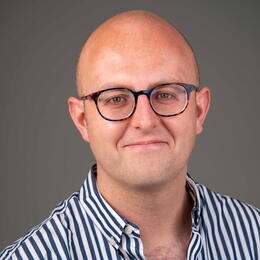
What do you enjoy about being a governor of Sidcot?
I’ve only just started in the role (as of May 2025), so I’m looking forward to learning the ropes and to getting to know not only my fellow governors but also the community of the School in its entirety. I’m keen to support Sidcot however I can through the position.
What do you do in everyday life?
I work in the Department of English at the University of Birmingham, where I’m a Professor of Twentieth-Century Literature. I teach students, give lectures, pursue research, write essays and books, and speak in public. Most recently I’ve been concentrating on the life and writing of George Orwell.
What’s most important to you about being a governor?
It’s a position of sizeable trust and one I feel privileged to hold. It’s important to live up to that trust through being a constructive, honest voice of counsel for Sidcot’s students, staff, and old scholars.
What are you curious about?
Curiosity took me into academia. In my professional life I enjoy learning about culture, history, and philosophy, and away from work I spend a lot of time listening to classical music (especially nineteenth- and twentieth-century piano repertoire) and watching films. Across both spheres I’m fascinated by the question of what it means to be human and by how writers, musicians, and filmmakers try to answer it.
What surprises you about Sidcot?
Less surprised and more consistently impressed by how humbly the school comports itself and by how its extended community is full of such modest yet accomplished people of all ages and backgrounds.
Do you think you would enjoy being a student at Sidcot? And if so, why?
I’ve already been a student at Sidcot (1993-2001), in fact, and very much enjoyed my time at the school, though I reckon I’d enjoy being a student now even more than I did in my youth: the school has grown and changed so positively since the 1990s.
What does Quakerism mean to you?
Self-scrutiny, mutual respect, and inquisitiveness in the most courteous sense: an interest in others, and in their well-being, coupled with a healthy respect for difference.
What's the best piece of advice you've ever been given?
In positions of responsibility, you don’t always need all the answers—you just need to know the next step. Sometimes the next step is to say that you don’t know the answer to a particular problem, but that you’ll ask someone else for advice. In other words: trust in collective knowledge. Don’t pretend to know something when you don’t know it. In many, many contexts, admitting ignorance isn’t weakness.
If you had one word to sum up Sidcot, what would it be?
Nurturing.

